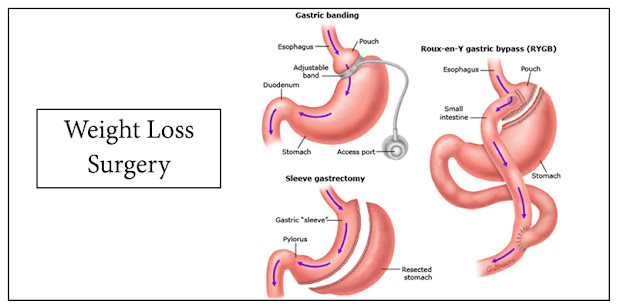WEIGHT LOSS SURGERY
Description
A weight loss surgery is performed on those individuals who are obese. In this surgery, the size of the stomach is reduced.
As a result, of the surgery, the capacity of the stomach to hold food reduces and also the capacity of the small intestine to absorb nutrients is reduced.
It is important to note that not every obese individual is suitable for this surgery. Individuals who have a BMI above 40 or overweight by 100 pounds (men) and 80 pounds (women) can undergo this surgery. Individuals suffering from heart disease, high cholesterol, and severe sleep apnea can undergo this surgery.
Pre Procedure
A thorough check-up has to be done in order to assess how fit the individual is for the surgery.
- The patient may also be advised to leave smoking and alcohol for some days prior to the surgery and after the surgery as it can delay healing.
During Procedure
They can be classified into two:
- Restrictive surgeries (This surgery shrinks the stomach size)
- Mal-absorptive surgeries (This surgery reduces the ability of the intestine to absorb nutrients)
Adjustable Gastric Banding: To control the amount of food that can be held, aballoon that is inflatable is placed around the upper part of the stomach
Sleeve Gastrectomy: In this surgery, a large portion of the stomach is reduced. It is a safer option for the obese.
Gastric Bypass Surgery: It involves a combination of malabsorptive procedures and restrictive procedures that connects the upper part of the small intestine to the upper part of the stomach. This procedure reduces the intake and absorption of food.
Biliopancreatic Diversion: A major part of the stomach is removed.
The bypass surgery helps in considerable weight loss. around 5 to 15 pounds per week.
- This rate of weight reduction proceeds until 2 or 3 months after which it diminishes to 1 to 2 pounds for every week for the following 6 months.
- However, how much weight is lost depends from individual to individual.
Risk Complication
- - The risks associated with this surgery are very rare.
- Still, in certain cases, the complications that may occur are in the form of infected wounds, ulcers, bleeding and digestive problems.

Comments
Post a Comment